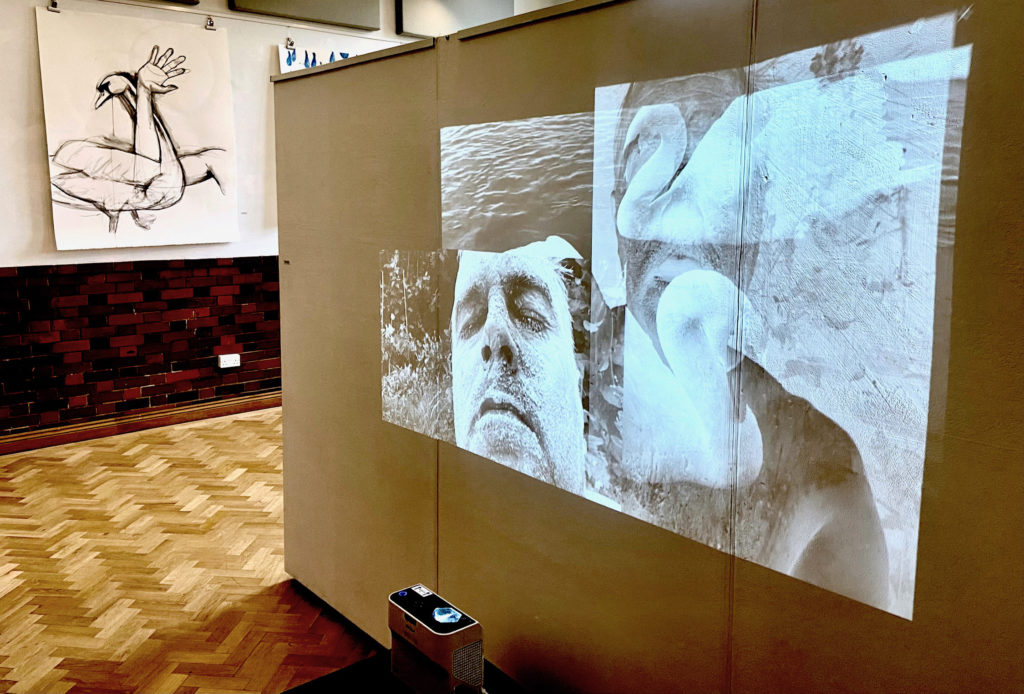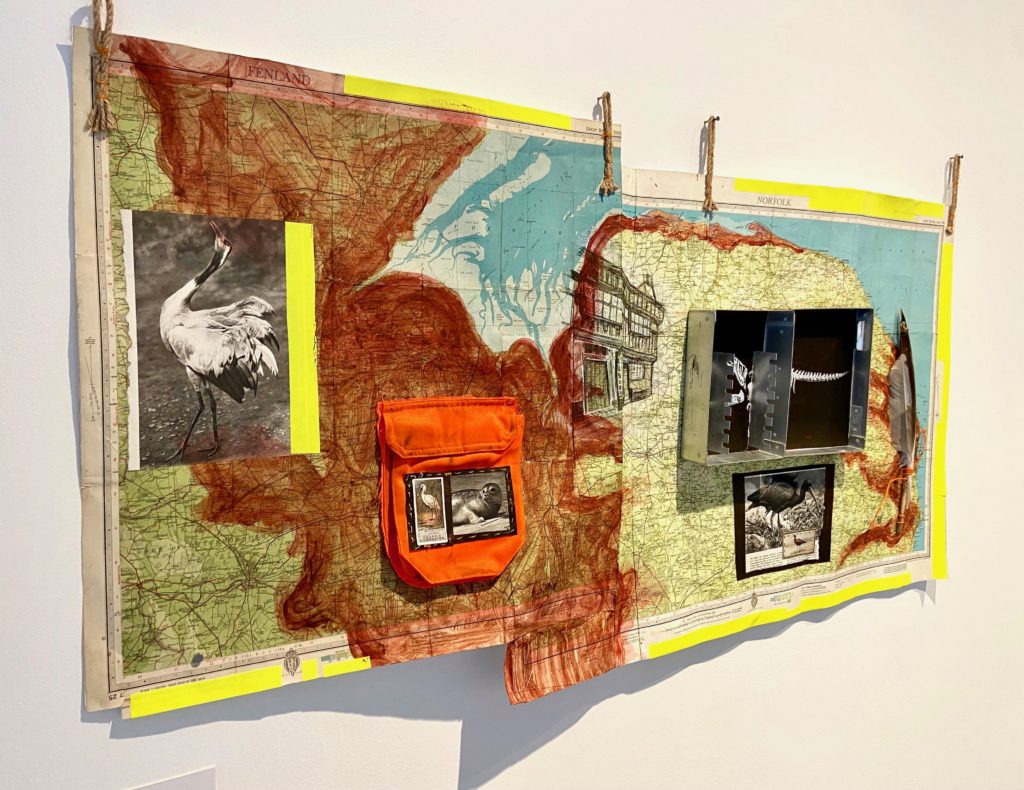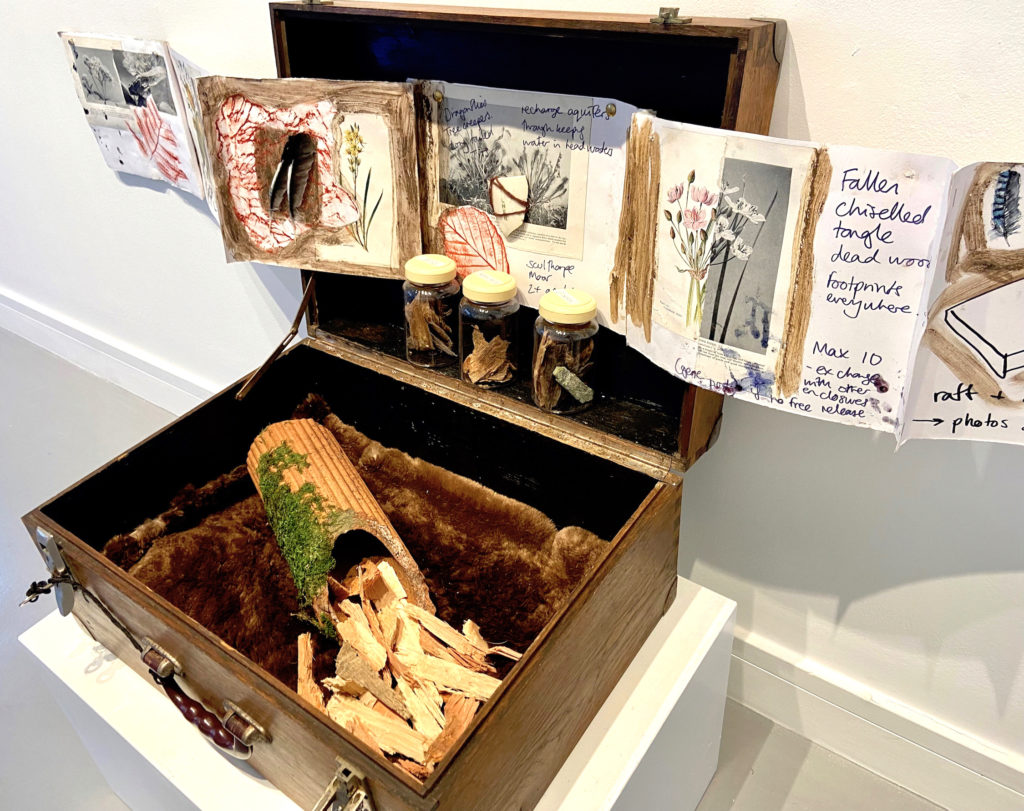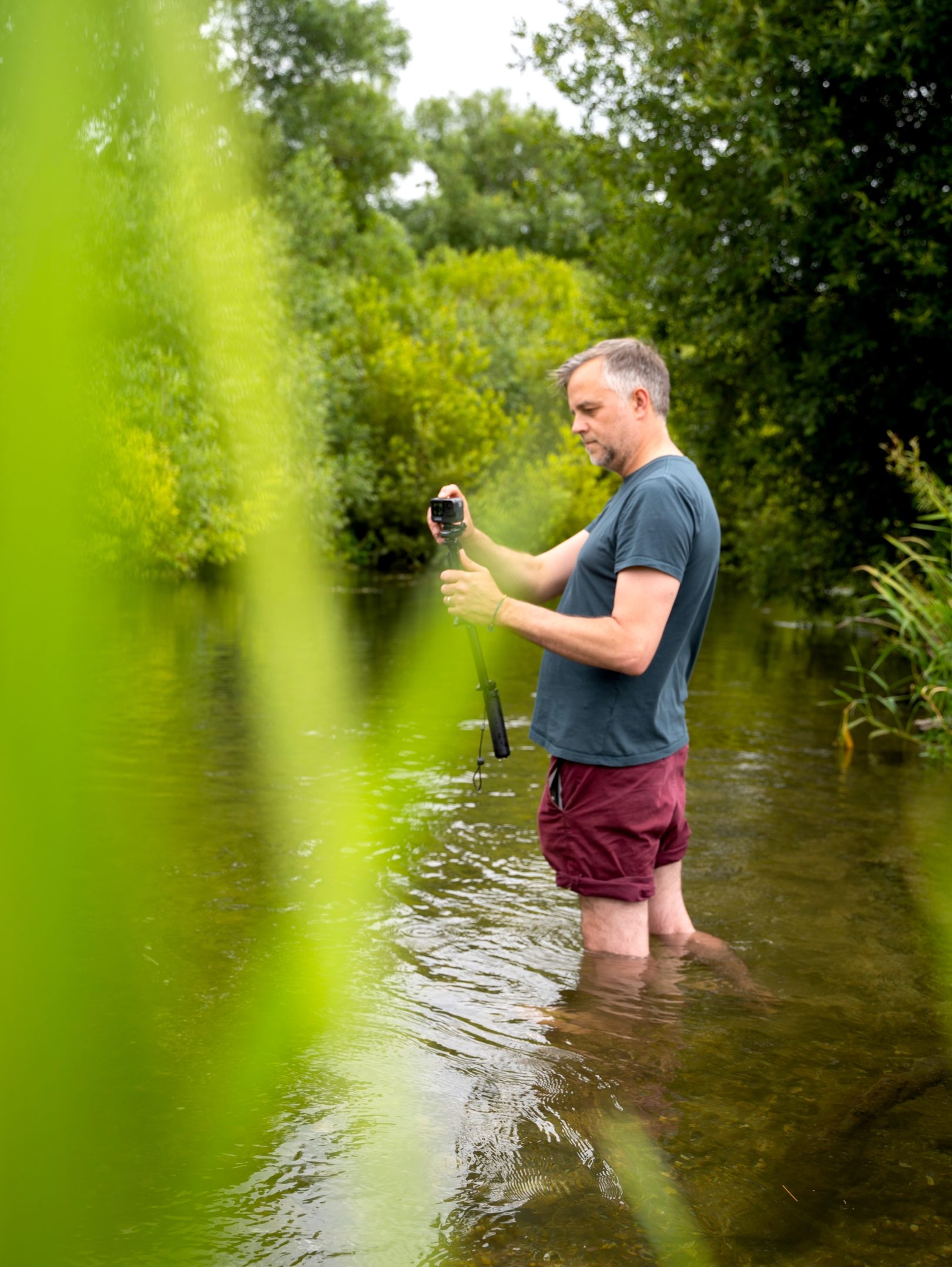James Aldridge is a visual artist, based in Wiltshire whose practice has three main parts. Individual research and making is at its heart. Participatory practice is an integral element. Thirdly, he includes consultancy and training among his skills and interests. Together they form a body of practice-led research, into the value of visual art as a means of engaging people in a dialogue with their environment. In this he integrates body, emotion, imagination and intellect.

Starting with Walking
Walking often acts as a starting point in James Aldridge’s making and writing. On his journeys, he records what he notices through text, found objects, photographs, sound/video or drawing. He creates objects and imagery out of this experience and layers them with other forms of knowing. These might include data from research into a site’s ecology or archaeology.
James Aldridge has carried out commissions and residencies for a range of arts, environmental and heritage organisations. These range from English Heritage to the Environment Agency.

Queer River
In 2020 James set up the Queer River research project. He has since developed a new strand of research exploring the concept of Neuroqueer Ecologies, where Queer Ecology meets neurodivergent experience. Underpinning all areas of James’s practice, is a belief in the urgent need to develop new ways of seeing and being with the world, in a time of climate breakdown and ecological collapse. His vision draws on a diverse range of voices. human and non-human.

James took part in the 2024 Ground Up residency and exhibition with Groundwork Gallery. Here he exhibited the wall-based installation The Beaver and the Whale. This was informed by research into Norfolk’s chalk streams, and the historic extraction of animal bodies.
Career landmarks
James Aldridge graduated in 1996 with a BA (Hons) in Fine Art (Sculpture) from UCA, Farnham. He has participated in co-curated exhibitions at venues including MK Gallery and Salisbury Art Centre. James has worked as a visiting lecturer in a range of subject areas, from Blue Health from medical students to creative outdoor learning with student teachers.

